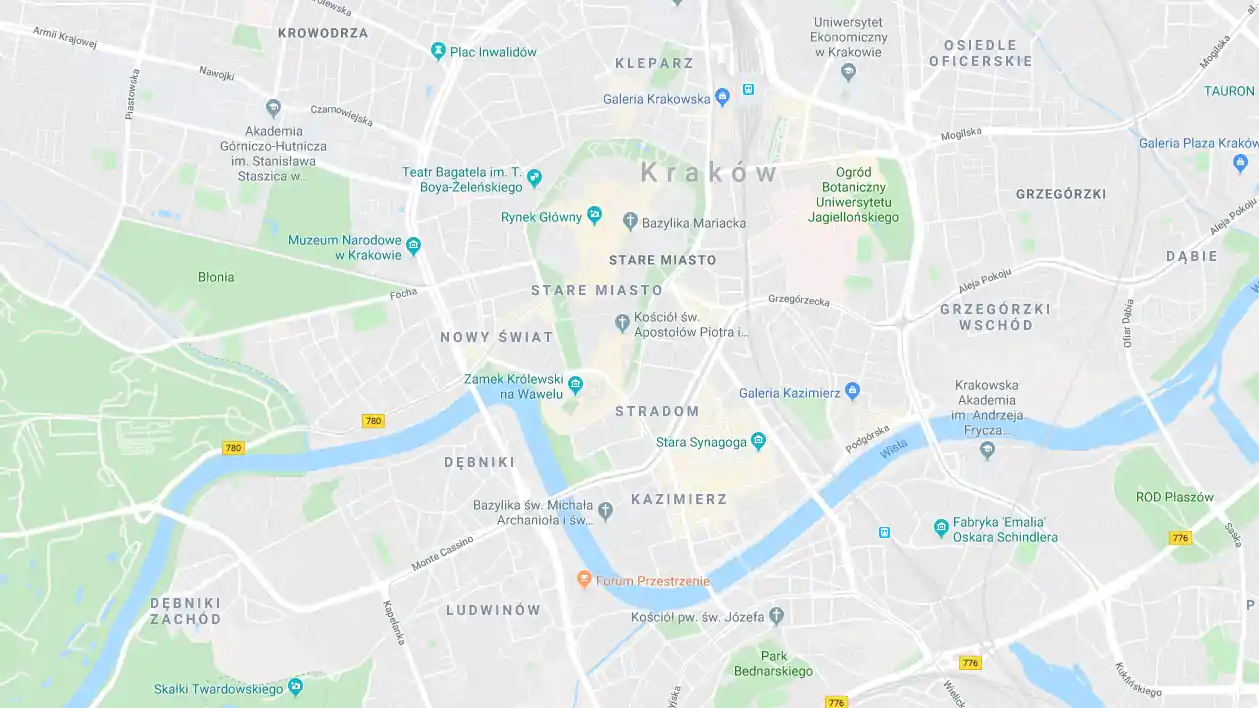Rabka-Zdrój
Health and beauty
34-700 Rabka-Zdrój
Tourist region: Gorce i Beskid Wyspowy
Rabka-Zdrój, a famous mountain children's health resort, is located in the valley of Gorce and Beskid Wyspowy mountains. Adults also come for therapy here, but it is the children who every year award the Order of the Smile (Order Uśmiechu) to adults, whose activity brought them the most joy. Here, there are three levels of the only chloride waters in Małopolska. As early as in the 19th century, they gained fame the strongest brines in Europe.
Rabka brine springs have been known to the local people for many centuries. A princely document of Bolesław the Chaste from 1254, mentioned by the 15th century historian, Jan Długosz in his chronicle, is evidence that the springs were used for therapeutic purposes.However, only tests performed in 1858 confirmed their benign properties, which gave an impulse for the development of the health resort. It was then established that the springs are one of the strongest iodine-bromine brines in Europe. Thanks to the initiative of Józef Dietl, a few years later Rabka saw the official launching of a health resort. Very quickly various spa facilities sprung up, and the spa park was founded. At the end of the 19th century Rabka gained recognition for treating children’s diseases and maintained this reputation until the present day. In the post-war period it was also an important tuberculosis treatment centre. Mineral waters: “Helena”, “Krakus”, “Rabka 18”, “Rabka 19”, “Warzelnia”.
The part of Rabka accommodating the health resort is located in the valley among the Gorce ridges. Among many attractions within spa park there is the brine graduation tower with Mineral Waters Pump Room, Skate and Trial Park, Road Traffic Town and Park Street Workout. The part of Rabka by
the Raba river boasts a beautiful wooden temple from 1606. It is an old church of St. Mary Magdalene, today housing the collection of the Władysław Orkan Museum. The most exceptional element of the exhibition is Poland’s largest collection of higland religious figures and paintings made by folk artists. A great place for children is the Rabkoland Family Entertainment Park. There are two museums within its premises. The first one, The Order of the Smile Museum, is devoted to the history and winners of this original award given by children. The second is the Museum of Records and Curiosities. In the nearby Chabówka you will have a unique opportunity to see the old steam engines, steam locomotives and other track vehicles. Located here is the Rolling Stock Hertitage Park, and during the season, tourist retro trains start their journeys here. The local villages can boast interesting examples of wooden buildings, including wooden churches on the Wooden Architecture Route.
Perfect areas for active tourism can be found in Gorce and the highest peaks in this area are protected within the Gorce National Park. You can set off on a long trip along the red trail, which leads next to PTTK (Polish Tourist and Sightseeing Society) mountain refuges on Maciejowa and Stare Wierchy, and then continues to the top of Turbacz (1310 m asl), the highest peak in Gorce. If you do not reach the top (the walk takes as much as 5 hours from the centre of Rabka), the walk along the beautiful ridges is still worth recommending. Luboń Wielki Mountain, (1022 m above sea level) towering above Rabka, can be climbed using one of the three trails: green, blue and yellow.The yellow one is the steepest, but it takes you through the area of the Luboń Wielki nature reserve, which has original rock debris and a small cave. Allow at least 3 hours 30 min to climb to the top.







